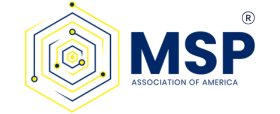Should MSPs Follow Simon Sinek or Peter Thiel’s Vision for Motivation?
In the world of Managed IT Services Providers (MSPs), motivation is key to driving business success. Two influential thinkers, Simon Sinek and Peter Thiel, offer contrasting views on what should drive this motivation.
Simon Sinek: The Infinite Game
Simon Sinek advocates for the concept of the “infinite game,” where the focus is on continuous self-improvement and innovation. According to Sinek, companies should compete against themselves, striving to be better than they were yesterday. This mindset encourages long-term thinking and resilience, fostering a culture of constant growth and adaptation.
Apple vs. Microsoft:
Sinek often uses Apple and Microsoft as examples to illustrate his point. He explains that Apple focuses on their vision and purpose, aiming to improve their products and services continuously. This approach has allowed Apple to innovate and lead the market, not by trying to beat Microsoft, but by striving to be better than they were before. In contrast, Microsoft has historically focused on competing directly with Apple, which Sinek argues is a finite game mindset. This focus on competition can lead to short-term wins but may not foster the same level of innovation and long-term success.
Peter Thiel: The Clear Competitor
On the other hand, Peter Thiel emphasizes the importance of having a clear competitor or “enemy.” Thiel believes that identifying a primary competitor can provide a tangible target, driving a company to stay focused and motivated. This approach can create a sense of urgency and a competitive edge, pushing the company to outperform its rivals.
Monopolies and Competition:
Thiel’s perspective is encapsulated in his famous phrase, “Competition is for losers.” He argues that businesses should strive for monopoly status rather than competing in existing markets. Thiel’s approach is about creating unique value propositions that set a company apart from its competitors, thereby reducing direct competition and increasing market dominance. This strategy has been a cornerstone of Thiel’s success with companies like PayPal and Palantir.
Incorporating Both Principles
Personally, I find that a hybrid approach works best. While I strive to top my own achievements and continuously improve, having a clear competitor motivates me the most. When I feel lazy, I visualize this specific competitor working tirelessly to beat me. This mental image spurs me into action, whether it’s late at night, early in the morning, or even during weekends and vacations.
This dual approach allows me to stay motivated and driven. When I’ve bested my nearest competitors, I shift my focus inward, aiming to surpass my own previous accomplishments. This balance between external competition and internal growth keeps me constantly pushing forward.
What Motivates Your IT Company?
The question for MSPs is: what actually motivates your business? Is it the infinite game of continuous self-improvement, a specific competitor, or a combination of both? Understanding what drives your team can help you harness the right motivation to achieve massive success.
By blending the principles of Simon Sinek and Peter Thiel, MSPs can create a dynamic and resilient approach to motivation, ensuring they stay ahead in a competitive market while continuously evolving and improving.


